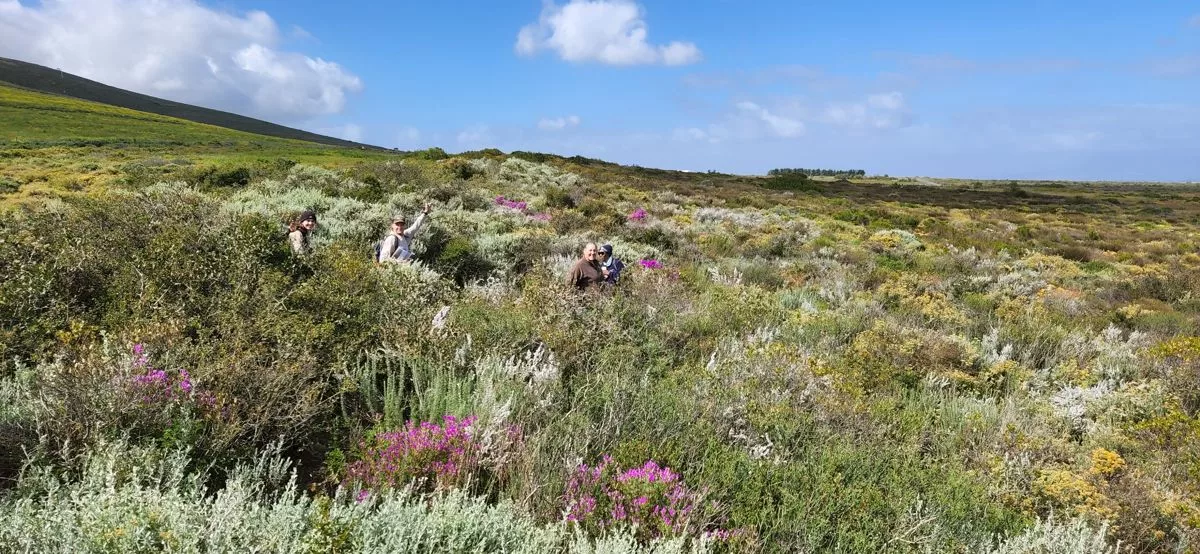Cape Town plans to establish six new nature reserves and expand nine existing ones to balance urban expansion with environmental sustainability. The city employs land banking and biodiversity offsets to preserve its unique biodiversity and natural assets. Collaborative efforts with CapeNature and local communities ensure transparent guidelines and public involvement, making Cape Town a model for sustainable urban development.
What are Cape Town’s plans for nature conservation?
Cape Town plans to establish six new nature reserves and expand nine existing ones to preserve its biodiversity and natural heritage. The city employs land banking and biodiversity offsets to support development while safeguarding crucial habitats. Collaborative efforts with CapeNature and local communities ensure transparent guidelines and public involvement. Cape Town’s commitment to sustainable urban development serves as a model for other cities to follow in preserving their unique biodiversity and natural assets.
Bold Initiatives in Nature Conservation
Cape Town, a bustling metropolis with a rich natural heritage, has consistently shown its dedication to balancing urban expansion and environmental sustainability. In line with the city’s unwavering commitment to preserving its biodiversity, the recent announcement disclosed plans to establish six new nature reserves and expand nine existing ones.
On October 26, 2023, the City of Cape Town’s Council unveiled plans to officially proclaim Ariesfontein, Haasendal, Soetwater, Symphony Way, Van Schoorsdrift, and Westlake Nature Reserves. Moreover, nine existing reserves will be expanded to further safeguard the region’s natural resources. This audacious move showcases Cape Town’s determination to preserve the city’s ecological riches while dealing with rapid urbanization.
Deputy Mayor and Mayoral Committee Member for Spatial Planning and Environment, Alderman Eddie Andrews, lauded the officials who played a part in the decision. He commended the Biodiversity Management team for tackling urban pressures and contributing to the numerous distinctions the city receives for its environmental initiatives.
Land Banking and Environmental Management
The practice of land banking has been instrumental in enabling the city to obtain areas worthy of conservation for future protection. By employing biodiversity offsets, Cape Town can continue to support development while safeguarding crucial habitats. A prime example of this is the expansion of the Witzands Aquifer Nature Reserve, an area acquired to implement the Atlantis Generic Environmental Management Programme (EMPr).
The EMPr, gazetted by the Minister of Forestry, Fisheries, and the Environment, simplifies the development process in Atlantis by removing various environmental authorization triggers. This encompasses those related to indigenous vegetation removal, promoting economic growth in the region while adhering to environmental standards.
Alderman Andrews highlighted the commitment of the City’s Biodiversity Management Branch in preserving and managing Cape Town’s distinct biodiversity and natural resources. Their efforts contribute to the city’s resilience and a lasting legacy of nature appreciation for upcoming generations.
Collaboration and Community Involvement
In cooperation with CapeNature, the formal proclamation process will soon begin, featuring opportunities for public involvement. This joint effort will ensure the new and expanded reserves are established with transparent guidelines and the participation of the local community.
Among the new reserves, Ariesfontein and Soetwater serve as examples of Cape Town’s dedication to preserving its varied landscapes. Ariesfontein features a striking and rugged terrain, while Soetwater provides a haven for marine life and coastal habitats. Each of these reserves showcases the region’s abundant natural beauty, representing Cape Town’s thriving biodiversity.
The expansion of existing reserves, such as the Witzands Aquifer Nature Reserve, emphasizes the city’s devotion to conserving its water resources. This particular reserve is essential for maintaining the city’s water supply and providing a habitat for numerous plant and animal species.
A Model for Sustainable Urban Development
The decision to establish new reserves and expand existing ones exemplifies Cape Town’s committed approach to safeguarding its natural heritage. As cities worldwide grapple with the pressures of urbanization on ecosystems, Cape Town’s actions serve as a prime example for others to follow in preserving their unique biodiversity and natural assets.
Through the proclamation of these new reserves and expansions, Cape Town ensures that its natural resources remain well-protected as the city continues to grow and develop. The collaborative efforts of the City’s Biodiversity Management Branch, CapeNature, and local communities in achieving this goal demonstrate the significance of cooperation in securing a sustainable, environmentally responsible future.
As Cape Town progresses with the proclamation and expansion of its nature reserves, both residents and visitors can marvel at the diverse array of landscapes and habitats that make this region such a remarkable destination. The ongoing commitment to preserving Cape Town’s natural wonders will undoubtedly inspire cities worldwide to embrace their environmental responsibilities.
1. What are Cape Town’s plans for nature conservation?
Cape Town plans to establish six new nature reserves and expand nine existing ones to preserve its biodiversity and natural heritage. The city employs land banking and biodiversity offsets to support development while safeguarding crucial habitats. Collaborative efforts with CapeNature and local communities ensure transparent guidelines and public involvement.
2. What is land banking and how does Cape Town use it in nature conservation?
Land banking is the practice of acquiring and holding onto areas of land that are worthy of conservation for future protection. Cape Town employs land banking as a tool to preserve its unique biodiversity and natural assets.
3. What are biodiversity offsets and how does Cape Town use them in nature conservation?
Biodiversity offsets are measures taken to compensate for the loss of biodiversity as a result of development. Cape Town uses biodiversity offsets to support development while safeguarding crucial habitats.
4. How does Cape Town involve local communities in its nature conservation efforts?
Cape Town collaborates with CapeNature and local communities to ensure transparent guidelines and public involvement in establishing new reserves and expanding existing ones.
5. What are some examples of new nature reserves established by Cape Town?
Cape Town plans to establish six new nature reserves, including Ariesfontein, Haasendal, Soetwater, Symphony Way, Van Schoorsdrift, and Westlake Nature Reserves.
6. How does the expansion of existing reserves contribute to Cape Town’s nature conservation efforts?
The expansion of existing reserves, such as the Witzands Aquifer Nature Reserve, emphasizes the city’s devotion to conserving its water resources. This particular reserve is essential for maintaining the city’s water supply and providing a habitat for numerous plant and animal species.
7. Why is Cape Town’s commitment to sustainable urban development significant?
Cape Town’s commitment to sustainable urban development serves as a model for other cities to follow in preserving their unique biodiversity and natural assets. As cities worldwide grapple with the pressures of urbanization on ecosystems, Cape Town’s actions demonstrate the significance of cooperation in securing a sustainable, environmentally responsible future.
8. How can residents and visitors contribute to Cape Town’s nature conservation efforts?
Residents and visitors can contribute to Cape Town’s nature conservation efforts by respecting the guidelines and regulations in place in the city’s nature reserves and protected areas. They can also support local conservation organizations and initiatives and promote sustainable tourism practices.








